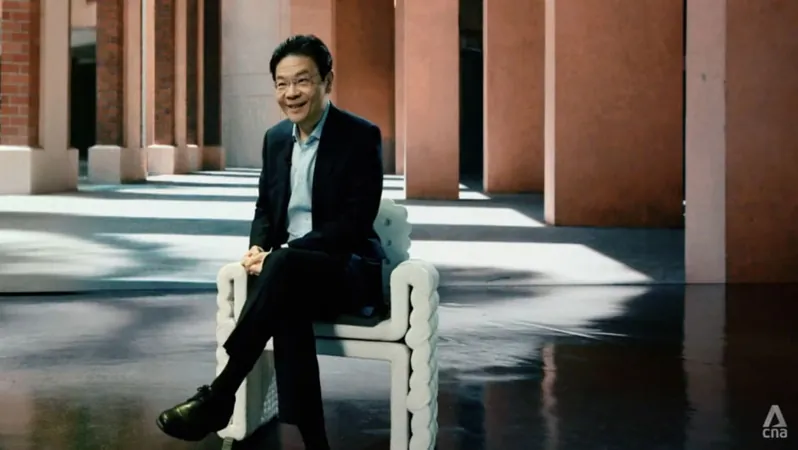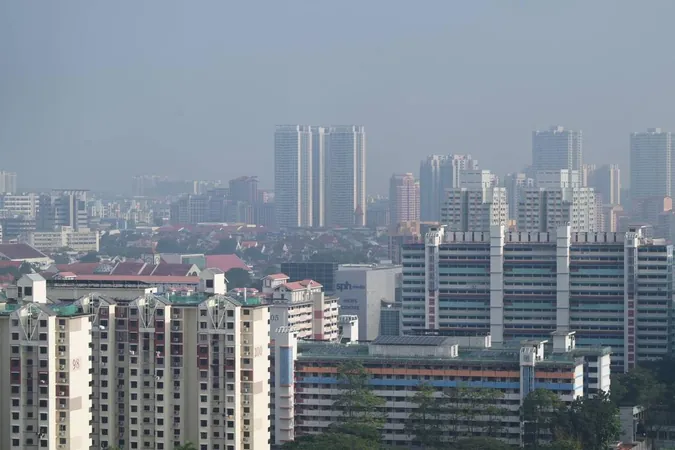
Housing in Singapore: PM Lawrence Wong Addresses Rising Prices, Lease Concerns, and Future Accessibility
2025-03-29
Author: Rajesh
Are BTOs Still Affordable?
Wong acknowledged the growing perception that BTO flats have become unaffordable, especially in comparison to historical prices. A three-room flat in Marine Parade that was priced at S$37,000 (approximately US$28,000) in 1974 is now outpaced by the cheapest BTO option in Bayshore, costing S$369,000. However, Wong emphasized the importance of making like-for-like comparisons, particularly focusing on the distinction between mature and non-mature estates.
He noted that in the past, Marine Parade was considered a non-mature estate, developed on reclaimed land, and initially struggled to attract buyers due to concerns about its stability. Today, the price for a three-room flat in a non-mature estate is around S$200,000, and with government grants, it can reduce to under S$100,000.
Moreover, Wong pointed out the rise in Singaporeans' incomes over the decades. For instance, the starting salary for teachers has surged to around S$4,000 monthly, significantly higher than in the 1970s. Encouragingly, about 80% of first-time BTO buyers can afford their homes and service loans with minimal cash outlay due to their Central Provident Fund (CPF) savings.
Addressing Lease Concerns
The topic of the 99-year lease has stirred considerable debate in Singapore. Wong explained that this leasing policy is crucial for maintaining future generations’ access to affordable housing. The government sells land on a 99-year basis, a norm not limited to HDB flats but extended to private condominiums as well. He argued that if all land became freehold, current landowners would benefit disproportionately, making it increasingly difficult for new generations to afford homes.
As the lease term approaches its end, concerns about property value decline arise. Wong reassured that 99 years is ample time for homeowners to derive value from their flats. Additionally, the government has initiated the lease buyback scheme, which allows homeowners to monetize their flats for retirement.
Improving Access for All Groups
With falling birth and marriage rates, Wong discussed the importance of making housing more accessible to diverse groups, including singles. He acknowledged that while demand for housing remains robust, COVID-19 has disrupted the supply chain, further complicating the housing landscape.
To address changing household dynamics, such as smaller family sizes, Wong affirmed that Singapore is in a phase of catching up in terms of housing supply. The government is actively exploring how to expand access for singles once the demand-supply equation stabilizes.
The Future of Home Ownership
Reflecting on his tenure as Minister for National Development, Wong acknowledged the intrinsic desire for homeownership among Singaporeans. Housing represents not just a physical residence but a sense of community and shared experience across a diverse society. However, he also highlighted challenges in preventing the speculative nature of property investments, where some individuals amass multiple properties, straining their finances.
In response, policies have been introduced, including higher Additional Buyer’s Stamp Duty (ABSD) for multiple property owners and regulated CPF usage to prevent excessive borrowing for housing.
As Singapore navigates its housing policies, Wong's insights shed light on the delicate balance between affordability, accessibility, and sustainable home ownership, ensuring that future generations can thrive in their own homes.


 Brasil (PT)
Brasil (PT)
 Canada (EN)
Canada (EN)
 Chile (ES)
Chile (ES)
 Česko (CS)
Česko (CS)
 대한민국 (KO)
대한민국 (KO)
 España (ES)
España (ES)
 France (FR)
France (FR)
 Hong Kong (EN)
Hong Kong (EN)
 Italia (IT)
Italia (IT)
 日本 (JA)
日本 (JA)
 Magyarország (HU)
Magyarország (HU)
 Norge (NO)
Norge (NO)
 Polska (PL)
Polska (PL)
 Schweiz (DE)
Schweiz (DE)
 Singapore (EN)
Singapore (EN)
 Sverige (SV)
Sverige (SV)
 Suomi (FI)
Suomi (FI)
 Türkiye (TR)
Türkiye (TR)
 الإمارات العربية المتحدة (AR)
الإمارات العربية المتحدة (AR)